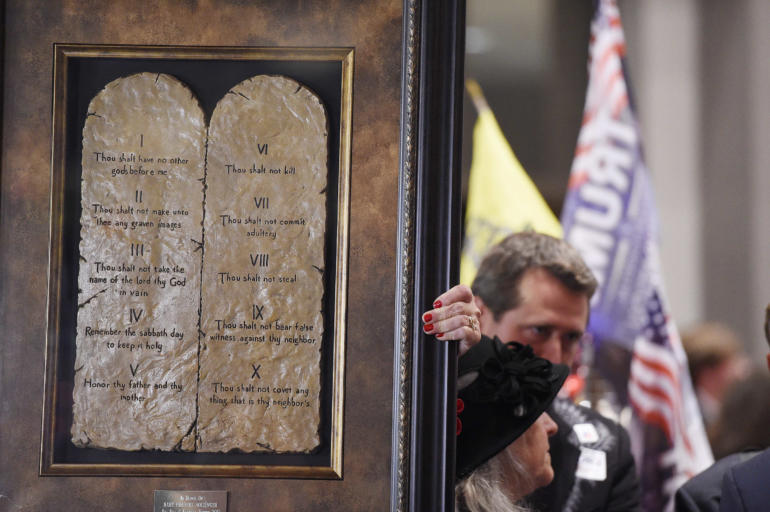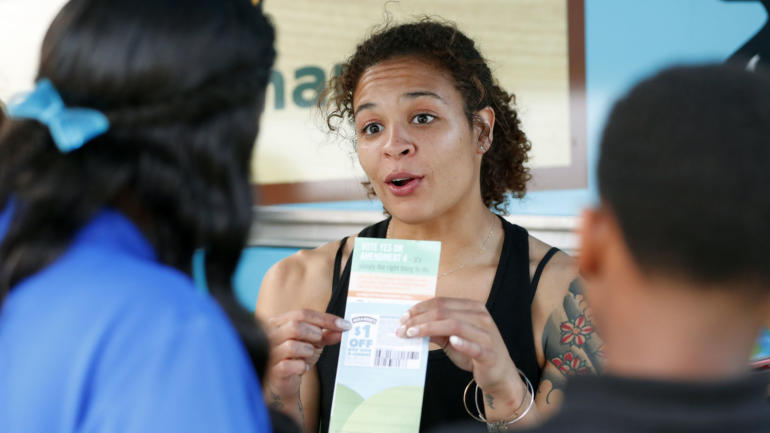While most politicos watching the midterms were keeping score of the house and senate seats in play, U.S. voters in 2018 also decided hundreds of ballot initiatives involving civil rights, church and state, federal funding, and even transforming the constitution of their respective states.
Here are seven state ballot initiatives passed in the 2018 midterms which may have significant cultural or constitutional weight down the road.
Florida
FL-4: Restore Felon Voting Rights
In Florida, Amendment 4 to the state constitution will restore voting rights to the majority of ex-felons, with the exception of felony sex offenders and murderers. According to the amendment, their right to vote will be reinstated once their prison sentence or probation is complete, and any other restitution is repaid.
Opposed by Republican governor Rick Scott, the initiative is politically significant because it will add at least one million new voters, mostly African American, to future election rolls. In the 2016 presidential election, Donald Trump only won the state by 112,911 votes.
Colorado
CO-A: Prohibiting Slavery
Yes. You read that right. Though there is some nuance, here.
The language of Colorado’s Amendment A, passed as part of the 2018 Midterms, “prohibits slavery and involuntary servitude as punishment for a crime and thereby prohibits slavery and involuntary servitude in all circumstances.”
Since the Civil War, most states have updated their individual constitutions to bar “forced prison labor” to avoid prisoners of the state to be treated like slaves, and even traded between private companies that contract prison labor with the state.
Some opposed to the amendment claim its language would bar judges from sentencing low-level offenders to community service, rather than prison time.
The 13th Amendment to the U.S. Constitution explicitly abolished slavery. It also banned anything considered “involuntary servitude” – so to avert legalized slavery by a different label. The only exception in the amendment is “as a punishment for crime whereof the party shall have been duly convicted.”
Alabama
AL-1: Allow the Ten Commandments on Public Property
In Alabama, voters approved a constitutional amendment that would allow display of the Ten Commandments in public schools and on public property.
To avoid conflict between church and state, displays must comply with “constitutional requirements” such as being accompanied by placards and documents pointing to historical significance.
According to the Associated Press, Amendment promoter Dean Young says the amendment sends a message that Alabama wants to “acknowledge God.”

A U.S. Senate candidate Roy Moore supporter walks with a framed artwork of the ten commandments during an election-night watch party, Tuesday, Dec. 12, 2017, in Montgomery, Ala. (AP Photo/Mike Stewart)
AL-2: Right to Life
Similar to an initiative passed in West Virginia, Alabama voters overwhelmingly chose an amendment to “protect the rights of unborn children” and “support the sanctity of unborn life.” It also says there are no constitutional protections for a woman’s right to an abortion.
Critics of Alabama’s amendment, and similar initiatives being considered nationwide, are laying the groundwork to outlaw abortion entirely should Roe v Wade be overturned by the U.S. Supreme Court. Concern about the fate of Roe v Wade has intensified since the appointment of Supreme Court Justice Brett Kavanaugh in October.
Massachusetts
MA-3: Gender Identity Rights
Voters in Massachusetts voted YES to uphold a 2016 law prohibiting discrimination in public places based on gender identity. Tuesday’s referendum also mandates equal access to historically segregated areas – like bathrooms and locker rooms — based upon the citizen’s self-identified gender identity.
The ballot initiative was the first statewide referendum on LGBTQ rights.
West Virginia
WV-1: No Right to Abortion
On Tuesday, West Virginia passed a constitutional amendment that simply states: “Nothing in this Constitution secures or protects a right to abortion or requires the funding of abortion.”
Proponents claim is the state’s right decline any public funding for abortion. West Virginia women’s rights group, WVFREE, say that if Roe v Wade were overturned federally, “draconian language in our own state code would totally criminalize all abortion. This means anyone involved in an abortion would be subject to jail time.”
New Hampshire
WNH-2: Right to Privacy
The Fourth and Fifth Amendments to the U.S. Constitution guarantees the right to be free from unreasonable searches and seizures, and the right to protect against self incrimination, respectively. Historically, these have been interpreted as the right to privacy.
But after the September 11, 2001 terror attacks and the surveillance measures introduced in the U.S. Patriot Act, the higher courts have ruled those amendments do not explicitly guarantee a right to privacy.
In New Hampshire, voters have chosen to fill that gap, amending their constitution to read, “An individual’s right to live free from governmental intrusion in private or personal information is natural, essential, and inherent.”
Sources: NPR, Ballotopedia, Associated Press.
 CGTN America
CGTN America
 In this, Monday, Oct. 22, 2018 photo, Jessica Jones, center, speaks to people gathered around the Ben & Jerry’s “Yes on 4” Truck about Amendment 4 at Charles Hadley Park in Miami. Amendment 4, asks voters to restore the voting rights of people with past felony convictions. More than 1.5 million adults in Florida are ineligible to vote because they have felony convictions. (AP Photo/Wilfredo Lee)
In this, Monday, Oct. 22, 2018 photo, Jessica Jones, center, speaks to people gathered around the Ben & Jerry’s “Yes on 4” Truck about Amendment 4 at Charles Hadley Park in Miami. Amendment 4, asks voters to restore the voting rights of people with past felony convictions. More than 1.5 million adults in Florida are ineligible to vote because they have felony convictions. (AP Photo/Wilfredo Lee)
